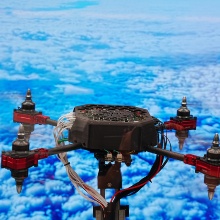Project goal
Complex avionics systems are a major safety, comfort and cost factor for aircraft. However, the high expenditure of time and resources for the development, configuration, integration and testing of higher-value automation functions is only justifiable for large aircraft. At the same time, the complexity of feasible functions is significantly limited. Functions of the same reliability for small aircraft or autonomous aircraft are not economically feasible. On the other hand, the need for safety-critical automation is growing. Plug&Fly avionics (PAFA) can improve the situation.
PAFA acts self-organizing according to the principle of autonomic computing, is self-proving and self-explanatory. The distributed computers of a PAFA platform recognize their topology, replicate functions at the necessary level of redundancy, and execute them in a resource-optimal manner. The development of system functions can be limited to pure functionality and almost all manual configuration parameters are eliminated. However, a realization of PAFA and, in particular, approval has so far failed due to a lack of a sufficient concept and inadequate algorithms.
PAFA-ONE is intended to develop these fundamentals. The goal is a laboratory setup of a functional and potentially qualifiable PAFA system. For this purpose, the concept of a secure and adaptive software and hardware platform as well as the algorithms of a self-organizing planning intelligence and a virtual qualification authority are to be developed. These are to be implemented in a functional way. An exemplary safety-critical system function will be developed and executed on PAFA. The entire development will be accompanied by an approval authority, which will evaluate the result at the end. A functioning PAFA instance opens up fundamentally new areas of application for avionics systems in industry and completely new fields of research in science.
Project start
PAFA-ONE is being implemented as part of the aeronautics research project LuFo VI-1 funded by the BMWi.







